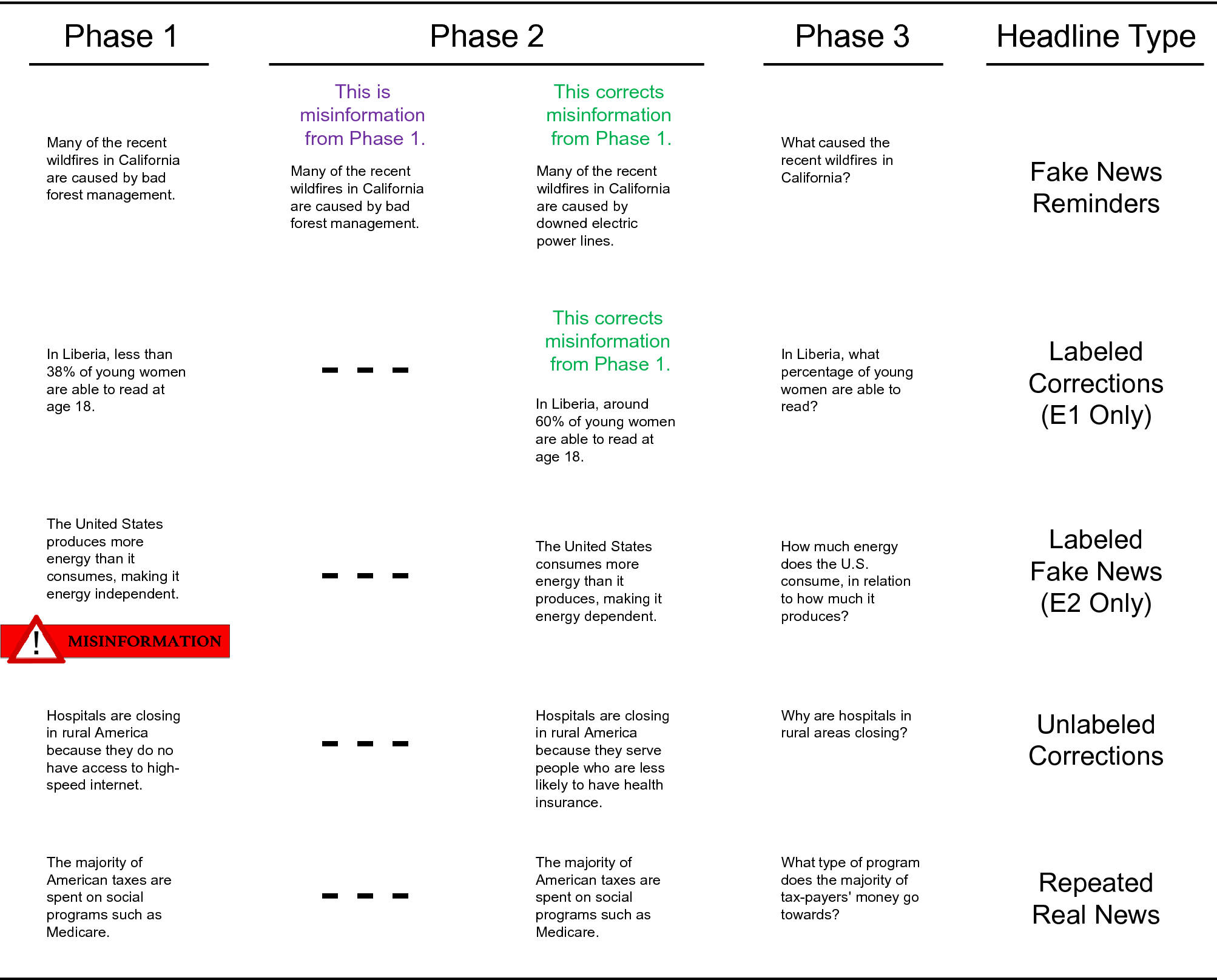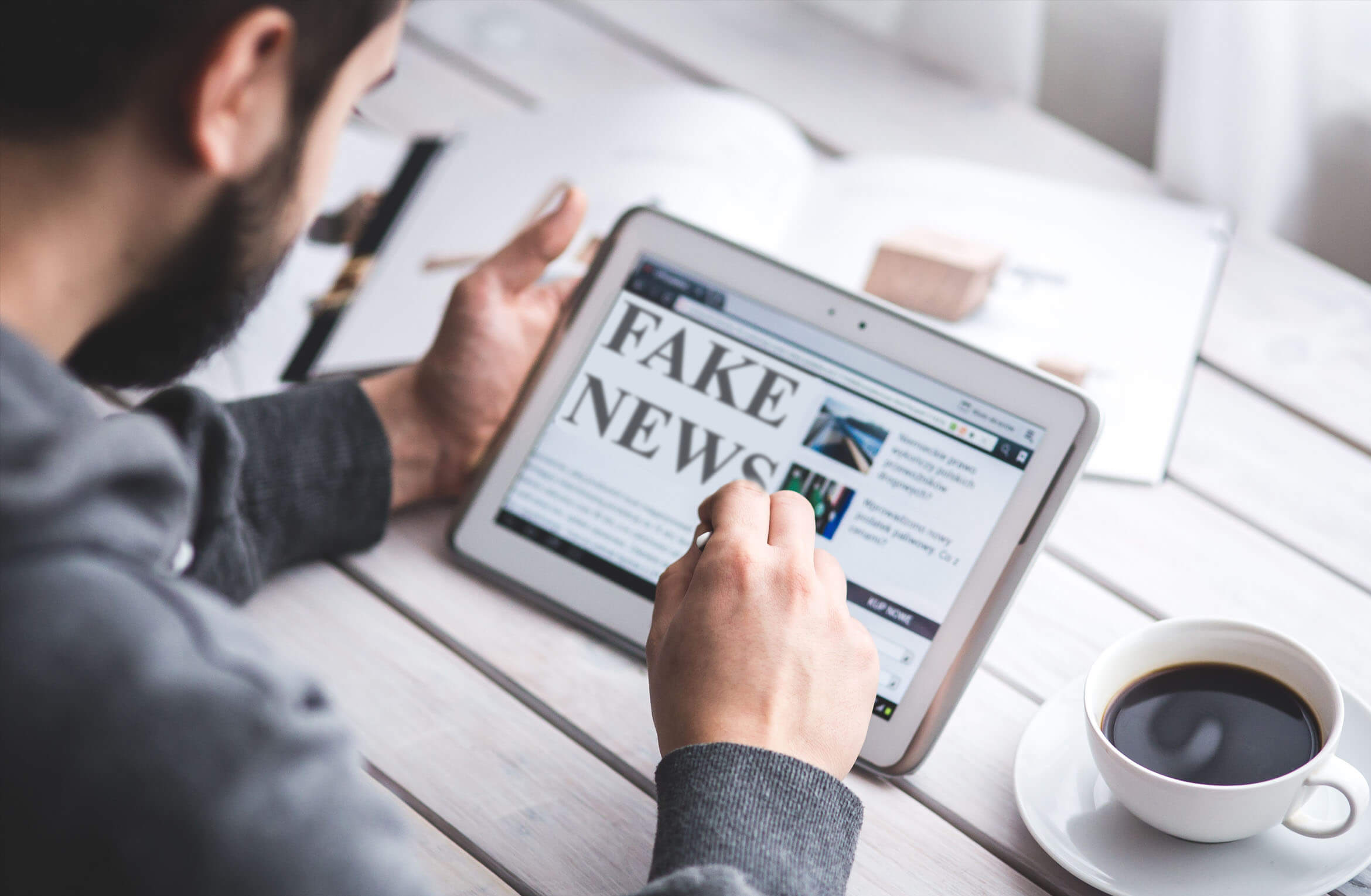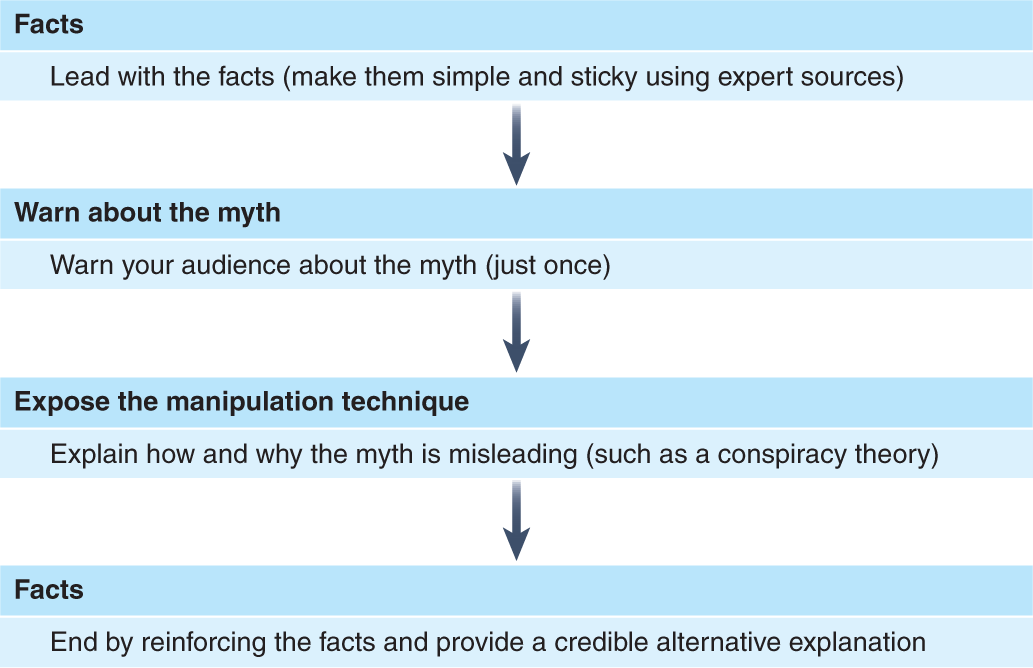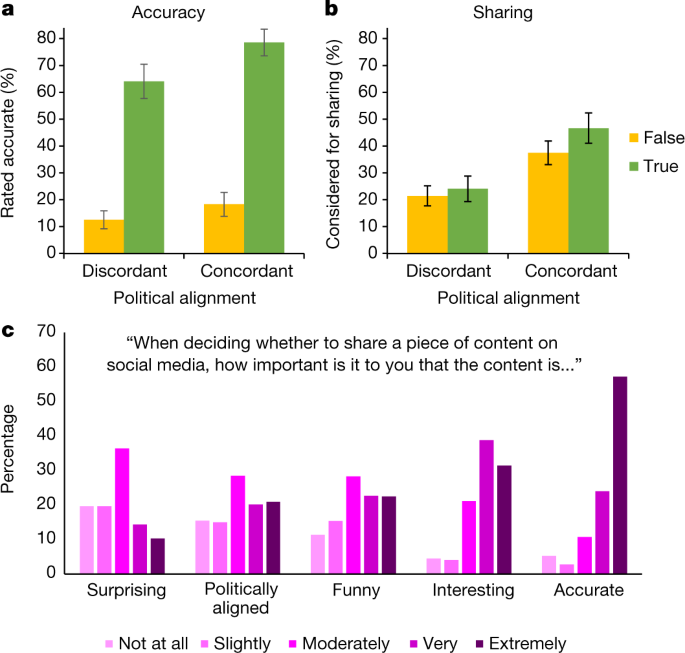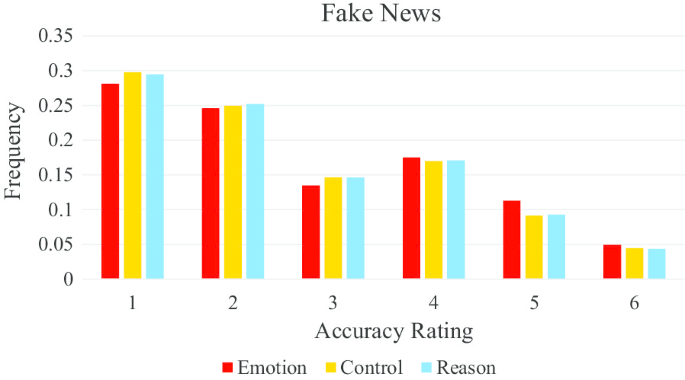
Reliance on emotion promotes belief in fake news | Cognitive Research: Principles and Implications | Full Text

Less than you think: Prevalence and predictors of fake news dissemination on Facebook | Science Advances
A systematic review on fake news research through the lens of news creation and consumption: Research efforts, challenges, and future directions | PLOS ONE
Determinants of individuals' belief in fake news: A scoping review determinants of belief in fake news | PLOS ONE

Thinking disposition, thinking style, and susceptibility to causal illusion predict fake news discriminability - Saltor - Applied Cognitive Psychology - Wiley Online Library

Susceptibility to misinformation is consistent across question framings and response modes and better explained by myside bias and partisanship than analytical thinking
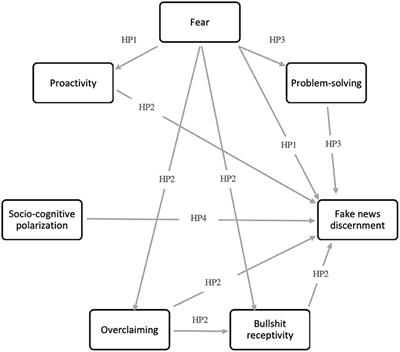
Frontiers | Going Viral: How Fear, Socio-Cognitive Polarization and Problem-Solving Influence Fake News Detection and Proliferation During COVID-19 Pandemic
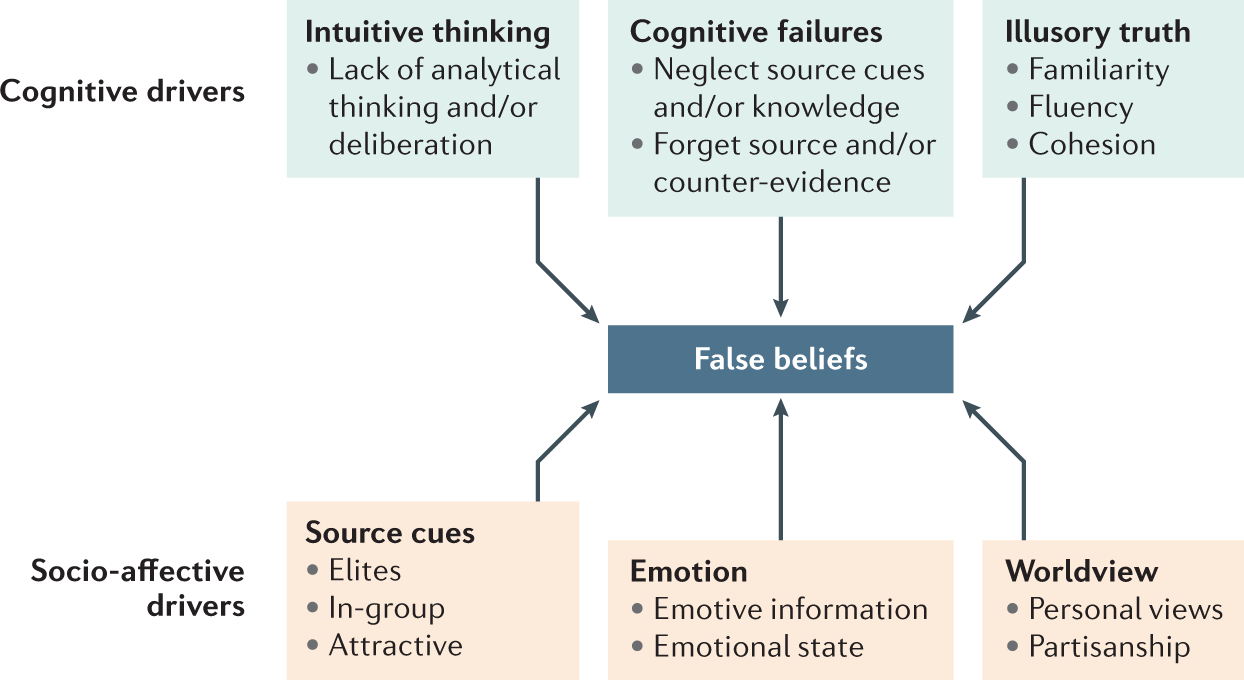
The psychological drivers of misinformation belief and its resistance to correction | Nature Reviews Psychology

Belief in fake news is associated with delusionality, dogmatism, religious fundamentalism, and reduced analytic thinking.
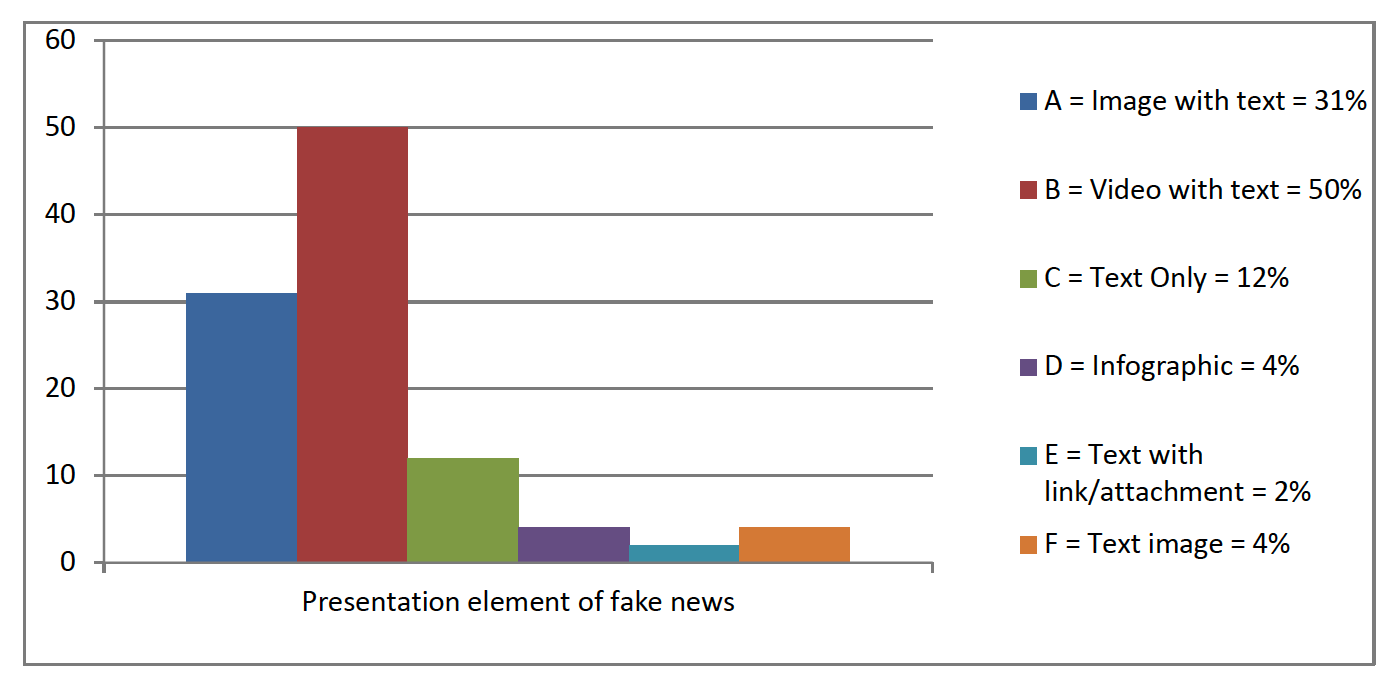
A Study on Fake News Subject Matter, Presentation Elements, Tools of Detection, and Social Media Platforms in India | Published in Asian Journal for Public Opinion Research
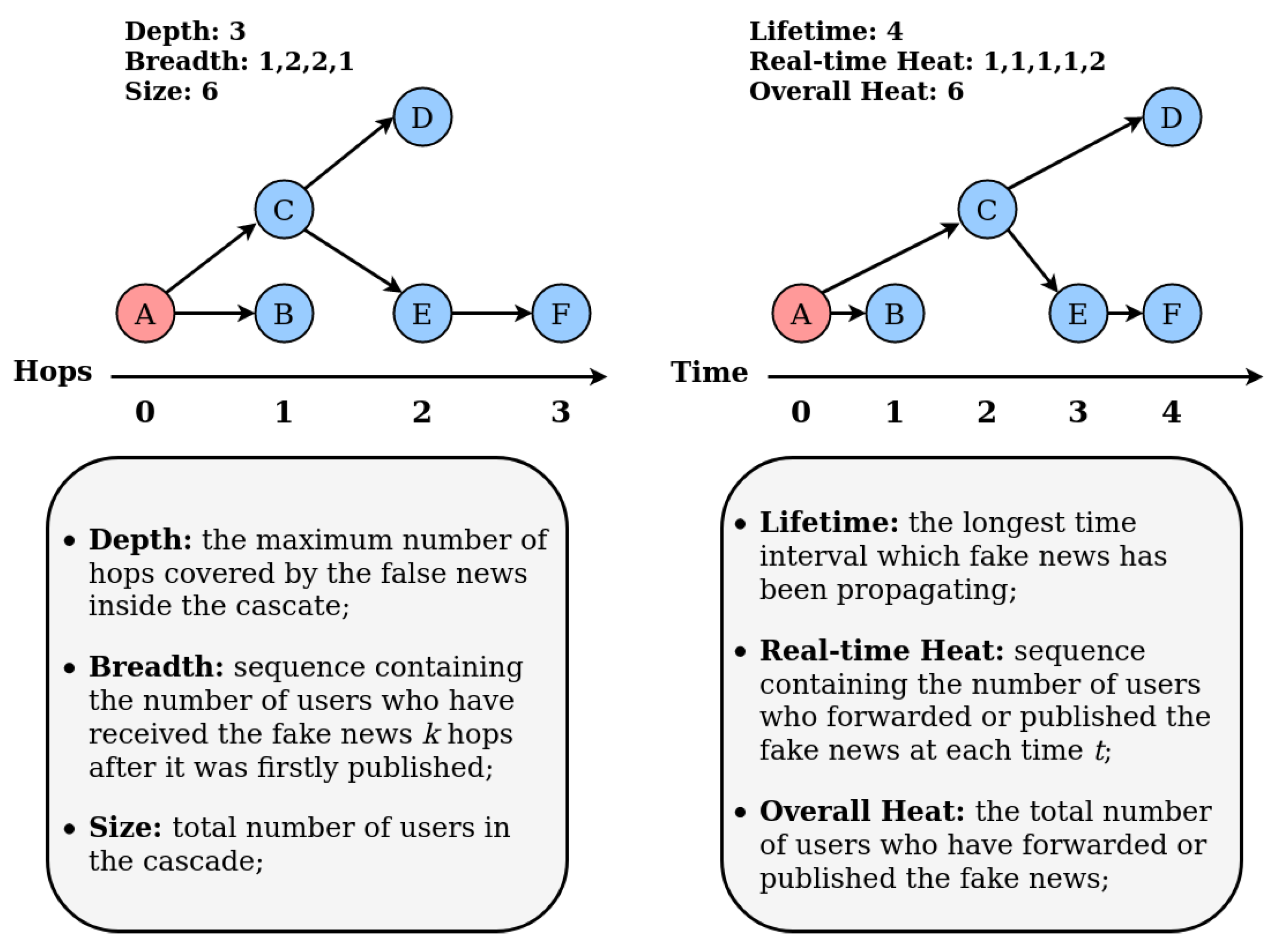
Information | Free Full-Text | Identifying Fake News on Social Networks Based on Natural Language Processing: Trends and Challenges
